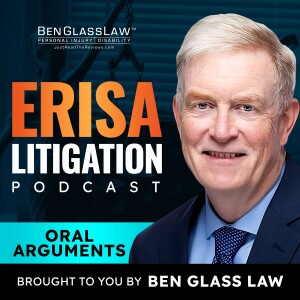

Winning a long-term disability claim against Reliance with post concussion syndrome, severe hyperacusis, vestibulopathy (dizziness), migraines, and cognitive problems.
Here, the claimant sued her insurance company, Reliance Standard, for not paying her long-term disability benefits after a car accident. She claimed to be not able to work due to a number of medical conditions, including post-concussion syndrome, severe hyperacusis, vestibulopathy (dizziness), migraines, and cognitive problems.
The District Court decided in Tekmen's favor. Reliance Standard didn't agree with this decision and appealed.
Most of the argument centers on just what the roles of the District Court and Appellate court are when you have a closed administrative record and a de novo standard of review.
The Fourth Circuit Court was asked by Reliance Standard to use a special kind of quick decision-making process in the Tekmen case, a lawsuit about denied insurance benefits. This process would have made it easier to decide the case based on existing records without giving the usual benefits to the party that didn't request the quick decision.
However, the court rejected this idea. They explained that this approach wasn't suitable for these types of cases, especially when there's disagreement over important facts, like in Tekmen's case. In situations where facts are disputed, courts need to closely examine everything and make their own decisions about what's true.
The court decided to stick to the usual way of handling such cases, as outlined in the Federal Rules of Civil Procedure. This involves a detailed review of all the information and making decisions based on that, not just a quick judgment.
The court also clarified that their decision-making process was in line with past legal principles, especially when it comes to reviewing the facts of a case. They emphasized that they follow a standard approach for reviewing facts and that this approach fits well with the established legal framework for insurance benefit cases like Tekmen's.
These public domain recordings are brought to you by Ben Glass Law, a national long term disability and life insurance firm headquartered in Fairfax, VA.
By making these recordings into a "podcast," we've made the listening easier for claimants, attorneys and claims adjusters alike.
If long term disability or life insurance benefits have been denied, we'd love to review your denial letter and give you a strategy for moving forward. This is a free service and you can go here to begin submitting your denial letter.
More Episodes
All Episodes>>Create Your Podcast In Minutes
- Full-featured podcast site
- Unlimited storage and bandwidth
- Comprehensive podcast stats
- Distribute to Apple Podcasts, Spotify, and more
- Make money with your podcast












